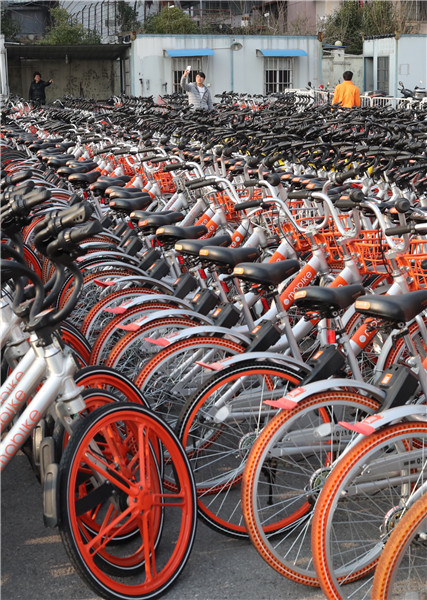Deputies call for action to stop sexual abuse of minors
|
Deputies to the NPC and experts attend a seminar on Thursday to call for immediate action against sexual abuse of minors. [Photo by Chen Weisong/China.org.cn] |
As the number of child sexual abuse cases has risen in recent years, some deputies to the National People’s Congress and various experts held a seminar on Thursday ahead of China’s annual two political sessions to call for immediate steps to stop the scourge.
The deputies proposed solutions including making sexual abuse awareness education compulsory in schools, and establishing a proper custody system for minors.
They said children should be taught about what constitutes a “safe touch” and know it is safe to tell teachers or other staff about abuse.
At the seminar, a survey report on child sexual abuse cases in 2016 was released by Girls’ Protecting, a charity fund initiated by dozens of female journalists in 2013.
The survey found that 433 cases of sexual abuse involving children under 14 were publicly reported in 2016, equating to an average of 1.21 cases a day, an increase of 30 percent year on year.
Wang Xuemei, co-founder of Girls’ Protecting, said the number of reported child sexual abuse cases significantly increased in the past three years, demonstrating it had become quite an acute social issue drawing more attention from society and the media.
However, many cases still go unreported because of the shame that comes with the act and complexity of the cases.
The survey report showed that of 778 victims whose cases were made public in 2016, 719 were girls, making up 92.42 percent, with a small number of boys. The perpetrators were mostly men.
“These figures awaken us to the gravity of the issue,” said Sun Xiaomei, an NPC deputy and a professor at China Women’s University. “The focus should be placed on building a protection net through coordinated efforts from families, schools and society.”
Li Yifei, an NPC deputy and principal of a middle school in Inner Mongolia, stressed the problem should be solved by a combination of law, education, moral and culture building.
According to the survey, in 2016, the youngest victim was aged less than 2, and 125 were under 7.
Girls’ Protecting pointed that children who are sexually molested are mainly aged between 12 and 14, reinforcing the fact that underage girls are easy targets of sexual abuse and there is a severe lack of awareness education for them.
The survey found more cases occurring in rural areas than in cities.
“Sexual abuse is a special topic when it comes to children’s protection,” said Tong Xiaojun, dean of the Institute of Children Studies at China Youth University of Political Studies. “There is currently no system in place to address the issue, certainly not in rural areas.”
He added that whether left-behind children in rural areas are more prone to sexual abuse is yet to be determined.
Lan Chuntao, an NPC deputy and a teacher at a high school in Guangxi Zhuang Autonomous Region, said: “The government should boost investment in rural areas. Moreover, I hope rural children can live with their parents who work in cities, thus reducing their vulnerabilities to sexual abuse.”
A more shocking fact revealed by the report is that offenders are largely people close to victims, with teachers making up 29.33 percent, neighbors 24.33 percent, relatives and friends 12 percent, family members 10 percent.
Grils’ Protecting has provided sexual abuse awareness education to more than 1,400,000 children along with more than 400,000 parents in 28 provinces in China by the end of last year.

